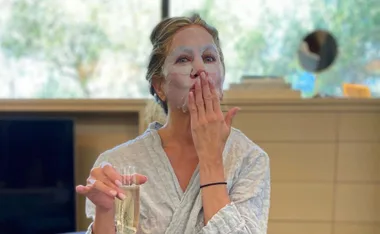This is the continuation of the true confession:
‘My daughter might be dating her brother’.
I had made the decision to tell my neighbour Tom that he could be my daughter’s father, regardless of the outcome. He had a right to know. But not everything went to plan.
My daughter Tiffany and Tom’s son Brad had organised a weekend getaway, just the two of them. So I was caught in a bind of whether to tell Tiffany before I knew the whole truth, or wait in case my husband James indeed was her father.
But I couldn’t wait. I could never forgive myself, and I’m sure Tiffany wouldn’t either, if she found out that I had a chance to tell her the truth before it got out of hand. I couldn’t allow Tiffany to go on this romantic getaway, knowing full well that Brad could be her brother.
I tried to play it down at first and, as casually as, possible asked Tiffany if she was serious with Brad. Of course, Tiffany said that she really adored him and wanted to see if their relationship could work. That didn’t really get me my answer, so I flat out asked her if she was sleeping with him.
Tiffany turned a bright red with embarrassment — a different red I knew to the one that would be flashed across her face soon enough — and she cowered and told me that she hadn’t taken that step yet… but who knew what was going to happen on their little getaway?
I couldn’t let it happen. I slowly began to tell Tiffany that she couldn’t go — first in a whisper, then in a shout. Tiffany looked baffled as to what I was talking about. She laughed and told me that she surely was old enough to make her own decisions about going away and who she was going to see. I assured her that that wasn’t the issue and then she looked even more confused.
I started to feel very nauseous and nervous. I must have turned a pale white and started to break out into a cold sweat because Tiffany asked me if I was alright. I had started now and knew I couldn’t stop.
I began, very hesitantly to explain what I had done 20 years ago. After I told Tiffany she just looked at me and asked if it was some kind of joke. I wasn’t smiling and couldn’t look her in the eye. I think it then dawned on her what it all meant and she ran to the bathroom to throw up. I followed after her and gave her a minute after I couldn’t hear any movement I tapped on the door to ask if she was OK. Of course, she wasn’t OK, but I didn’t know what else to say through a bathroom door.
All of a sudden, Tiffany bolted out of the bathroom, pushing me to the ground and yelling that she never wanted to see me again. I tried to chase her but she was too fast. She got in her car and drove off.
I knew my husband James was going to be home shortly, so I waited at the kitchen table. Waited complete my confession and ultimately end of my life. James came home all happy, which only made it so much harder for me. I knew I was going to crush him in all of two minutes. He asked me if I was OK, considering I must have looked like a sombre statue at the table. I asked him to sit down and then I divulged my 20-year-old secret.
James was shattered. I tried to apologise and explain how I should have told him all along. James just stared at me with so much disgust and then he walked out.
We had the paternity test and Tom is the father.
I decided to move out of the family home and let Tiffany and James have their time. I feel sorry for Tiffany most of all, knowing that because of me she has lost two people she once loved and now must feel so lost and confused. I know she will always think of James as her father. James has decided to sell the house and move, with Tiffany, to another area.
Tom and Shelley are still together however no longer talking to me. Tom has spoken with Tiffany but she doesn’t really expect anything from him, considering he had no idea either.
I have tried to patch up my mess and am trying desperately to make amends with both James and Tiffany, but mostly Tiffany. James and I are getting a divorce and have been separated for 10 months now. I don’t think things will ever be the same again but I only pray that Tiffany can partially forgive me enough to let me make it up to her.
She and Brad haven’t spoken much after they found out. I think the truth of it all has really affected them. I tried to apologise to Brad also and he spat in my face. I don’t blame him for being angry at me. Brad has moved away for uni and I know that made it easy for Tiffany to move on with her life.
I have also relocated, not too far from where I used to live, in an attempt to start a new life. I am not sure how I am going to sort all this out but I am slowly trying to adjust day by day.
Picture: Getty Images. Posed by model.































.jpg?resize=380%2C285)






































.png?resize=380%2C285)
